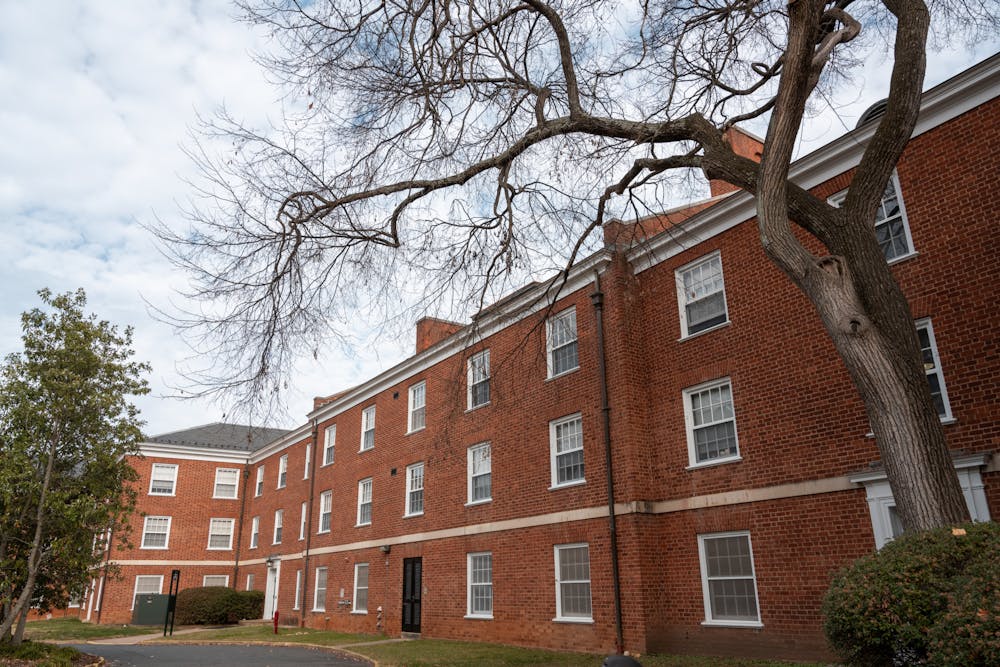Thanksgiving is a time for students to gather with their families, eat good food and take a break before the finals period inevitably rolls around. However, for students who can not easily travel home for break, Thanksgiving break presents its own unique challenges. Organizations on and off Grounds have started offering support for students staying on Grounds, from meal kits to Thanksgiving dinners with local families.
Thanksgiving break begins Wednesday, giving students three class days off in addition to the weekend. Prior to 2007, the break was an entire week long. Quickly after the change from one week to three days, out-of-state and international students argued that the break did not consider the extensive travel they would have to undertake.
Roughly 32 percent of undergraduate students are out-of-state, and roughly 5 percent are international. Unlike in-state students, Thanksgiving is not a time where these students can go home easily — or even travel at all, due to high transportation costs and long travel times.
For students who do opt to stay on Grounds, many organizations have undertaken initiatives and events to ensure that students feel at home — including ensuring they have access to a low-cost or free meal when Thanksgiving arrives, as on-Grounds dining options are open with limited availability over break.
Newcomb Dining Hall offers breakfast and dinner Tuesday but will close from Wednesday to Saturday. All U.Va. Dine options will be closed Thursday, with only Crossroads and other Observatory Dining Hall to-go options opening Friday and Saturday.
The Student Life Agency of the Student Council has partnered with U.Va. Community Food Pantry to provide around 200 free meal kits to students that require food assistance. Students can reserve the kits, which provide food from the Blue Ridge area food bank, along with donations from Trader Joes and Harris Teeter, through first-come, first-serve basis on an online form. Any leftovers will be donated back to the pantry.
Christopher Joseph, director of the Student Life agency and third-year College student, is a first-generation, low-income student, and has used the meal kits while staying on Grounds over Thanksgiving break since his first year.
“'It’s just really helpful to know that there are resources out there for students, and it's part of the reason why I was so enthralled by the Student Life agency,” Joseph said. “[The meal kits] really made me feel like I was supported and that I was welcomed at the University.”
In addition, the Lorna Sundberg International Center annually organizes the Thanksgiving Meal Match — an event where international students are matched with local families for a Thanksgiving meal. These events allow international students to feel at home and integrated into the University community and broader American culture.
As an international student from China, second-year College student Huijing Zhu chose to stay on Grounds last Thanksgiving break, and will do the same this year.
“Flying home is a costly choice to make, especially when there is only one week [of break],” Zhu said. “I think I prefer the quiet environment [at the University during the break], and I think it helps me concentrate more on work.”
Despite the advantages of the quiet environment, Zhu said she often felt isolated on Grounds during the Thanksgiving break. All on-Grounds housing remains open over break, but Housing and Residence Life offices and mailboxes will close Nov. 22 to Nov. 26.
“The dorms and Grounds are so empty,” Zhu said. “I definitely feel restricted and [as if] I am locked in my own room.”
For out-of-state or international students who choose to go back home, the short break also imposes travel challenges for the three day break.
Third-year College student Kiersten Freeman spoke about her own troubles flying back home from Charlottesville to Tennessee. For Freeman, her travel takes roughly five hours without any delays or cancellations. Currently, a round trip flight costs upwards of $600.
“Given the fact that the University doesn't give us the full week off for Thanksgiving, that makes it kind of difficult to gauge how to book flights and how my class schedule plays into my travels home,” Freeman said. “With how costly flights are, it wouldn’t be worth it to go home for three days, so I try to get the full week.”
While classes officially meet Monday and Tuesday, some professors choose to cancel class, or meet online. Still, inconsistency across schedules means most students can not count on a longer break without missing important information in the classroom.
Though the University ensures that students have housing over break, Freeman still thought the University could do more to accommodate these students as well as their travels.
“The three days that we do get [of break] doesn't really take out-of-state and international students into consideration given the fact that we often have more extensive travel plans,” Freeman said. “I feel like the University could do better.”







